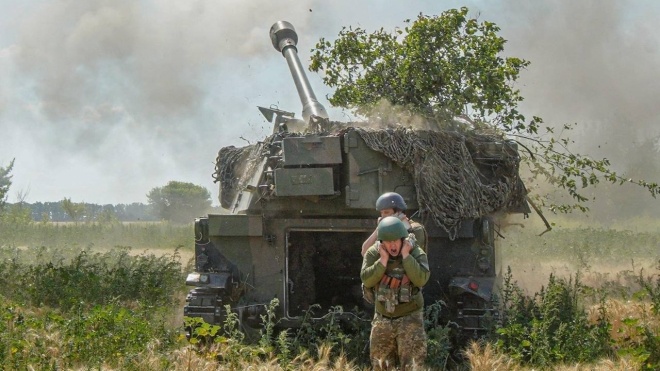The Economist writes about the "language question" in Ukraine and about Ukrainians motivated by full-scale war to learn Ukrainian. Since Putin decided to use the Russian-speaking population of Ukraine as one of the pretexts for the invasion, more and more Ukrainians are trying to switch to Ukrainian, the publication writes. In particular, in Odesa, a traditionally Russian-speaking city, the demand for the Ukrainian conversation club of the city library has grown significantly. According to the observations of the authors of the article, the club is visited mainly by women over 50 years old, "with permanent perms and arrows in the eyes", but the clubʼs coordinator and librarian Valentina says that the motivation to speak Ukrainian has increased among various social groups. Thatʼs all "thanks" to Putin, who in his infamous essay on the "unity of the Ukrainian and Russian peoples" called Ukrainian only a regional dialect of Russian. The publication refutes this thesis, comparing Ukrainian and Russian with Spanish and Portuguese: they have common roots, but are completely different languages.
The Guardianʼs defense and security editor Dan Sabbach highlights five predictions for the development of events in Ukraine over the next six months. The first forecast is a stalemate, that is, both sides, despite heavy losses, may not be ready to admit defeat, peace negotiations may not begin, and movement on the front line may be minimal. The second possible scenario is that Kyiv may change its strategy and focus on partisan raids deep into the occupied territories due to the lack of artillery power for a mass counterattack. The third scenario is that Russia may slow down its offensive and focus on maintaining the already occupied territory. Active preparation of the occupiers for the so-called referendums is in favor of this forecast. The fourth prediction concerns the coming winter: Russia hopes for a new wave of migration and an energy crisis that may weaken Ukraine and its support in Europe. Finally, the fifth scenario is more like a dilemma — may the Western allies decide to support Ukraine until victory or may they keep aid at an average level. Currently, the humanitarian crisis in Ukraine is intensifying, and there is a critical lack of funds to overcome it.
Rhodri Jeffreys-Jones writes about the decline and revival of the CIA in an essay on The Conversation. The author describes the history and mission of the Central Intelligence Agency in the USA and its role in the Russian-Ukrainian war. For a long time, the purpose of the CIAʼs existence was to counter the communist threat, the author writes, and after the end of the Cold War, the agency gradually lost its influence. Until in 2016, before the change of the U.S. President, the CIA did not begin to return its former power. President-elect Trump at the time treated the CIA with disdain and even refused traditional daily briefings, saying: "Iʼm a smart person and I donʼt need to repeat the same thing every day." Meanwhile, the CIA was reviving and developing its network of sources, in particular by attracting "mole" from circles close to the Kremlin, writes Jeffries-Jones. When Joe Biden came to power, he managed to appoint his old friend William Burns to the post of CIA director. Burns had extensive experience in Russian-American relations, including serving as the U.S. ambassador to the Russian Federation in 2005-2008, which allowed him to help shape the U.S. position in response to Russiaʼs full-scale invasion of Ukraine. It was Burns who led the U.S. delegation to the Russian Federation in November 2021 and was convinced that Putin would attack. The head of the administration also believes that Putin may well resort to nuclear weapons. Presumably, Jeffries-Jones writes, to help Ukraine, the CIA collects and transmits intelligence and coordinates propaganda in favor of Ukraine. In addition, Burns is a big supporter of behind-the-scenes diplomacy, so it should not be ruled out that the CIA may at some point, on occasion, become a negotiator in the war.
